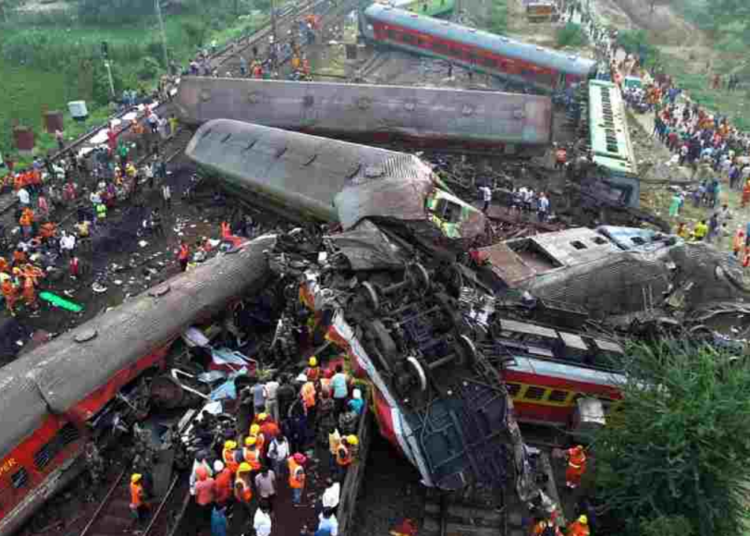At least 261 people have been killed after three trains were involved in a horrific crash in the eastern Indian state of Odisha, as rescue pulled all remaining survivors from the wreckage, according to officials.
The accident on Friday in Odisha state’s Balasore district – India’s deadliest rail incident in nearly 20 years – also left an estimated 900 people injured, Pradeep Jena, the state’s top civil servant, said on Saturday. ANI news agency reported on Saturday that rescue operations had concluded.
An extensive search and rescue operation has been mounted, involving hundreds of fire department personnel, police officers and sniffer dogs. National Disaster Response Force teams were also at the site.
Army soldiers and air force helicopters joined the relief effort along with local authorities.
More than 200 ambulances were called to the scene of the accident and 100 additional doctors, on top of 80 already there, were mobilised to get the wounded to hospital and care for those still at the scene.
The collision occurred at about 7pm local time (13:30 GMT) on Friday when the Howrah Superfast Express, running from Bengaluru to Howrah, West Bengal, collided with the Coromandel Express, which runs from Kolkata to Chennai. Authorities have provided conflicting accounts on which train derailed first to become entangled with the other and have yet to make any statements about possible causes.
Debabrata Mohanty, an editor at the Hindustan Times, told Al Jazeera that four livestock wagons on the train that left from Kolkata went off the track shortly before 7pm. “No one knows how it happened, but it was travelling at around 100 km/h,” he said.
Shortly after, the train coming from Bengaluru crashed into two of the derailed rail coaches. “But most of the casualties happened because this one particular train got derailed, not because of the two trains colliding,” Mohanty added.
One survivor narrated his nightmare as he was jolted awake when the carriage he was sleeping in overturned.
“My sleep broke and 10-15 people fell on top of me,” he told reporters, as he sat on the ground in the dark, steps away from the crash site. “I hurt my hand and neck … I saw someone had lost their hand, someone had lost their leg … I got out of there and since then I have been sitting here.”
On Friday, hundreds of young people lined up outside a government hospital in Odisha’s Soro to donate blood.
“I am personally indebted and grateful to all the volunteers who’ve donated blood for a noble cause,” Jena wrote in a tweet.
Jena described it as a “violent and tragic accident involving three trains – two passenger trains and one goods train”.
The cause of the accident was being investigated, said Amitabh Sharma, a spokesperson for Indian Railways. The details of the accident were not immediately clear, nor was the sequence of events.
Odisha’s Chief Minister Naveen Patnaik, who is expected to visit the area on Saturday, said the priority was “removing the living to the hospitals. That’s our first concern – to look after the living.”
Several hundred accidents occur every year on India’s railways, with most of them blamed on human error or outdated signalling equipment. More than 12 million people ride 14,000 trains across India every day, travelling on 64,000km (40,000 miles) of track.
Sudhanshu Mani, former Indian Railways general manager, told Al Jazeera that investments had gone into track maintenance and other safety measures in recent years.
“Today’s accident is very unfortunate,” Mani said, adding that the casualties would be high due to the number of people on board the trains.
“But the number of accidents has come down and there are projects on the way to improve the safety even more,” he said.
There was no official confirmation of the total number of passengers on the trains.
The worst disasters in recent years include one in October 2018, when a train ran over a crowd watching fireworks during a religious festival on the outskirts of Amritsar, a city in Punjab state, killing at least 60 people and injuring dozens more.
At least 146 people were killed in November 2016, when a passenger train travelling between the cities of Indore and Patna slid off the tracks. More than 200 people were injured in that accident.
Indian Prime Minister Narendra Modi on Friday said that rescue operations were under way and “all possible assistance” was being given to those affected.










